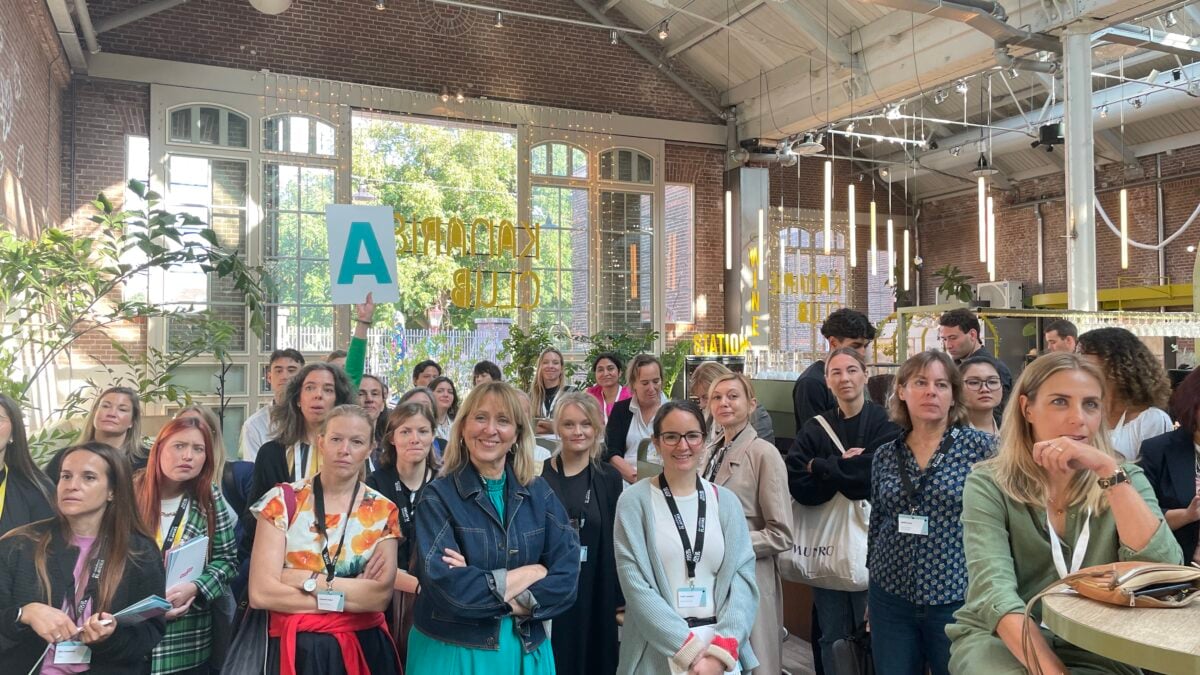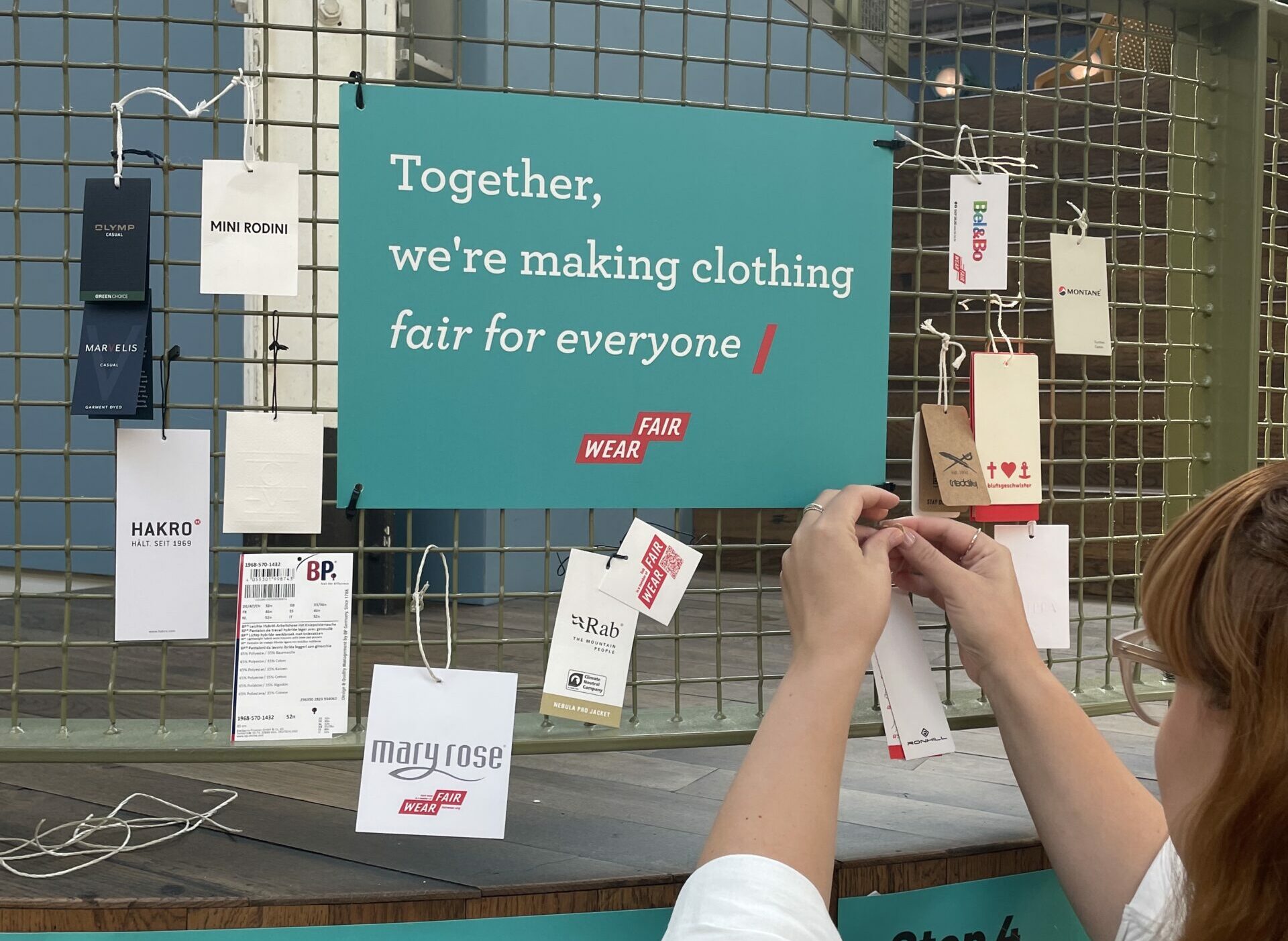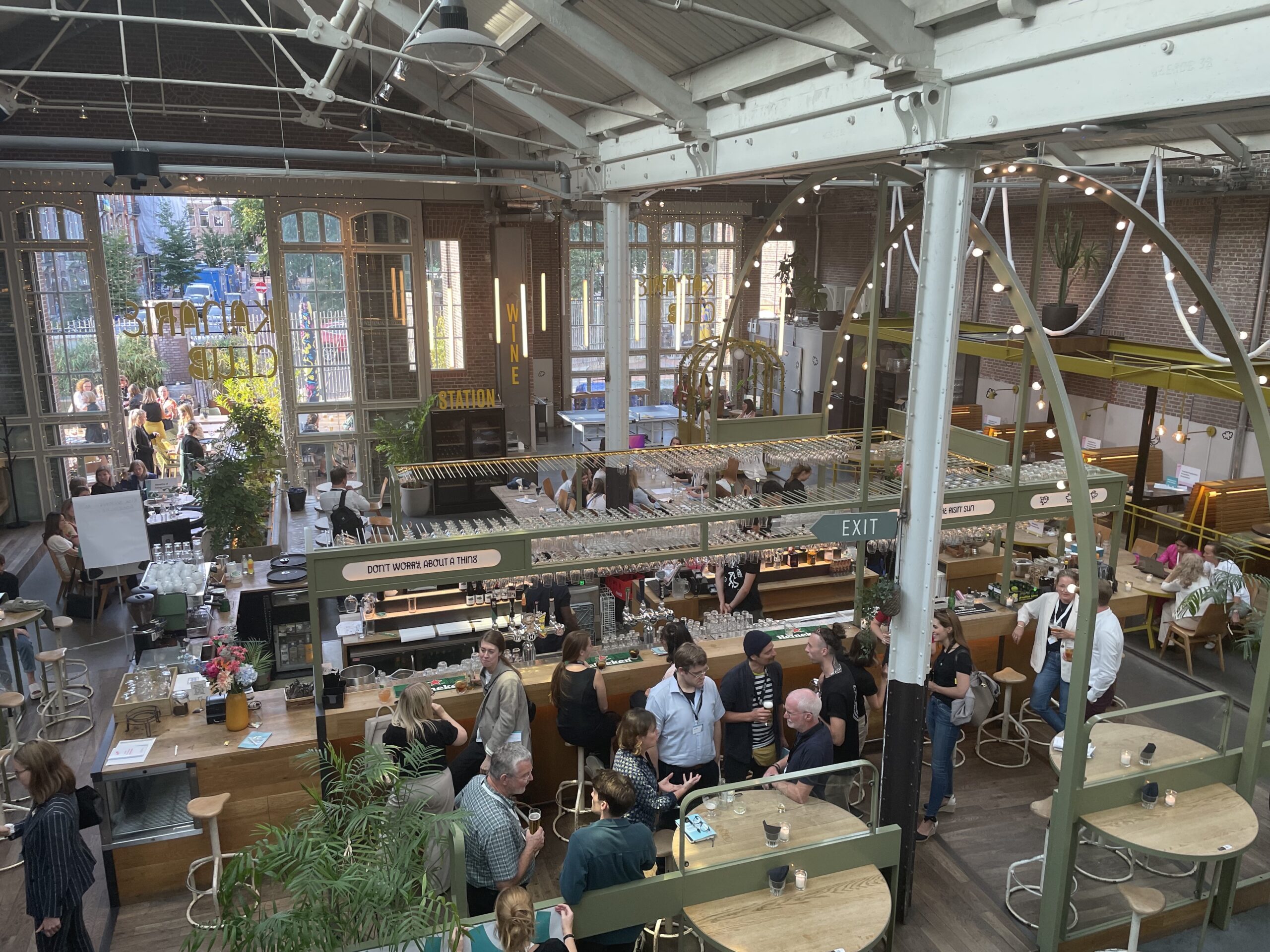
Member day 2023!
On Friday, we were joined by our member brands at our annual Member Day in Amsterdam. As always, the day was a brilliant way for our member brands to meet one another and get inspired for the future of our work together.
We kickstarted the day with a look at industry transitions and developments. While the long-standing approach in the industry has been audit-based, the sector is now on the way to embracing OECD-aligned human rights due diligence (HRDD). This transition will mean that brands are responsible for assessing and managing potential and actual human rights risks within their supply chains. It is a welcome shift, as Fair Wear has advocated for a shared supply chain responsibility approach since our inception over 20 years ago. With this experience and expertise in mind, we are uniquely placed to shape the future of due diligence alongside our member brands, ensuring that it is both “impactful and practical”, as Alexander Kohnstamm, our Executive Director, put it.
Rituparna Majumdar, our Technical Advisor on HRDD, explained how HRDD can be truly impactful by bringing it back to the needs of production countries. In Ritu’s words, “when making the shift to HRDD, we need to emotionally invest in our workers and make them feel relevant; the only way that we can do this is by engaging with them.” Indeed, now that HRDD is becoming the industry’s status quo, it is essential that it doesn’t become a mere buzzword. Ensuring that meaningful stakeholder engagement is properly incorporated into due diligence efforts is especially important given the upcoming EU Corporate Sustainability Due Diligence Directive (EU CSDDD).

One of the benefits of being a Fair Wear member brand is being able to connect with other industry frontrunners. After the welcoming speeches, our member brands were given time to mingle and unpack what they’d just heard – sharing with one another the insights they’ve gained since embarking on this due diligence journey.
Next on our agenda was ‘practising HRDD’. We launched our HRDD facilitation tool at last year’s member day. A year on and our members have been fully onboarded onto the system, having access to a tool that puts the necessary practicality into due diligence, as mentioned by Kohnstamm earlier. All member brands are now equipped to identify risks related to countries and factories, and to monitor and track how these risks develop. Anne van Lakerveld, our HRDD expert, and Bas Coesel, our Information Manager, gave the audience a whistle stop tour of the latest updates we’ve made to the platform. By providing member brands with specific actions that they can operationalise in their supply chain, the system not only enables them to stay ahead of the curve ahead of the EU CSDDD, “it’s also meant to show that change is possible,” said Lakerveld.

During our ‘Let’s get inspired’ session, our member brands took the stage to share their good practice stories. We heard Hakro share how they’re fostering equal partnerships with their suppliers; Fond Of address how they carry out collaborative planning; Sandqvist present on their approach to risk scoping; and, Bierbaum explain how they’re embracing risk assessments.
We also learnt how Albiro made a positive impact through use of our grievance mechanism. Being informed through the Fair Wear complaints helpline that unauthorised wage deductions had taken place in a production facility in North Macedonia, Albiro retroactively paid out the wage reductions to all affected employees. “However, as important as it was to remedy the harm, we knew that this would only treat a symptom, and the root cause had to be found and fixed,” Linda Thommesen shared. “Through conversations and numerous visits, we found out that the production facility had difficulties to calculate prices correctly,” added Thommesen. In the end, Albiro worked with Fair Wear’s country team in North Macedonia to train the facility on the Fair Price app, enabling them to calculate prices correctly. As this story shows, our member brands go above and beyond the industry norm to improve conditions at their suppliers’ factories, and we’re here to support them every step of the way.
We followed this session with a chance for our member brands to join in-depth discussions on a variety of topics, such as living wage, gender-responsive due diligence, due diligence legislation, and many more.
We’re grateful that some of our key stakeholders joined to offer their expertise. Jayanth Kashyap and Bernadette Blom from The Good Fashion Fund led a session on the role of financers in environmental and social impact and Matthijs Crietee from STTI joined our Policy and Advocacy Officer, Wilco van Bokhorst, to talk on The Common Framework For Responsible Purchasing Practices. We were lucky enough to also be joined by Silvia Mera from GoodWeave, who spoke to our member brands on the no use of child, forced or bonded labour; Yen Nguyen and Isabelle de Lijser from CNV International and Karen Brouwer from FNV International who shared insights on the multi-company collective bargaining (MCCBA) processes in Vietnam and Indonesia; and, Fleur Meerman from the Open Supply Hub who addressed how transparency on supplier data promotes accountability and access to remedy.
The agenda was an inspiring one, preparing our member brands ahead of this next performance check period, and motivating them on their due diligence journeys. We of course ended the day in true Dutch style with a borrell complete with lekker food and drink, and even more lekker conversation.



